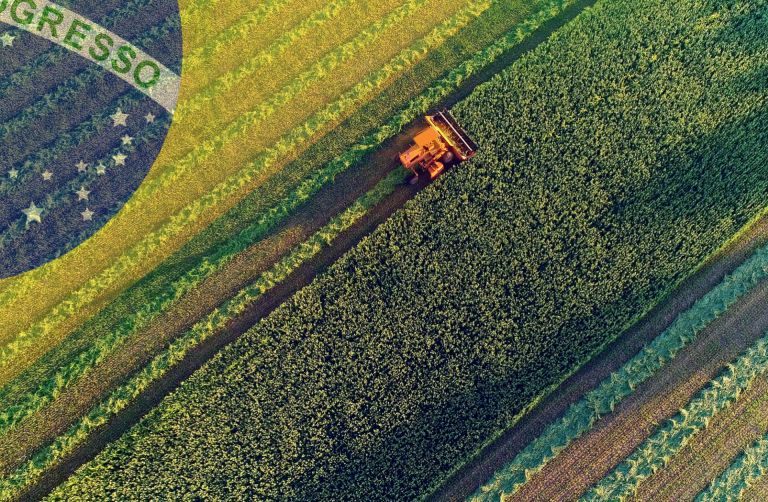Mariangela Hungria, a microbiologist from Brazil, has spent decades digging into the soil in search of microscopic allies—bacteria that can nourish crops and help farmers increase their yields. For years, her quest was met with disbelief.
“At the beginning of my career, people kept telling me, ‘You’re wasting your time! This kind of thing will never succeed,’” she remembers.
Now her pioneering efforts have been recognized with the World Food Prize, a prestigious honor in the realm of agriculture and nutrition. The award, which includes a $500,000 cash prize, acknowledges scientific breakthroughs that help secure global food supplies.
Hungria has worked her entire professional life with the Brazilian Agricultural Research Corporation (EMBRAPA), a renowned institution largely responsible for Brazil’s transformation from food importer to agricultural powerhouse. Half a century ago, Brazil depended on food imports. Today, it’s the world’s leading supplier of soybeans and several other key crops. It has even overtaken the United States as China’s main source of soy.
A passion sparked by her grandmother
Hungria says her fascination with science began early, thanks to her “magical” grandmother who introduced her to backyard plants and the living soil beneath them.
“On a holiday, she handed me one of her books,” Hungria recalls. “It was all about microbiologists and their work.” Captivated, she stayed up all night reading. By morning, she had made up her mind: she would become a microbiologist too.
After earning her Ph.D. at the Federal Rural University of Rio de Janeiro, Hungria joined EMBRAPA in 1982, continuing the legacy of another groundbreaking scientist, Johanna Döbereiner, who had explored how microbes could improve crop production.
Hungria succeeded in isolating strains of rhizobia—bacteria that form nodules on soybean roots, pulling nitrogen from the air and transforming it into a nutrient for the plant. She also identified benefits from a species called Azospirillum, which releases natural growth hormones that enhance root systems, helping crops like corn and wheat absorb nutrients more effectively.
“She’s a remarkable scientist and an inspiration to many, including myself,” says Leo Bortolon, a Brazilian soil expert now working at North Dakota State University. According to him, nearly all major crop seeds in Brazil today—especially soybeans and corn—are treated with beneficial microbes before planting.
Revolution in a bottle
There remains some debate over the effectiveness of these treatments under varying conditions, but in Brazil, the evidence is compelling. Farmers have been able to reduce their reliance on chemical fertilizers, saving costs and limiting environmental harm.
Bortolon notes that microbial use is more widespread in Brazil than in the U.S. due to farmers’ confidence in the technology. Brazilian regulators only approve microbial products after rigorous testing to confirm their efficacy in local soil and climate conditions.
“Mariangela helped shape how these products are regulated,” Bortolon says.
Hungria is now the second EMBRAPA researcher to receive the World Food Prize. The first, Edson Lobato, developed methods for cultivating crops in Brazil’s once-overlooked Cerrado region, an expansive zone of grasslands and sparse trees.
This achievement helped elevate EMBRAPA’s status to near-legendary among Brazilians. “For many people, EMBRAPA represents the heroic force that unlocked Brazil’s vast interior for agriculture,” says Ryan Nehring from the International Food Policy Research Institute.
Until recent decades, the Cerrado was considered inhospitable to farming due to its acidic soil. But EMBRAPA scientists taught farmers how to treat the soil with lime and nutrients, unleashing vast agricultural development.
However, government policies of the time favored large landholders, and the result was a rapid increase in inequality. Some farms grew so massive that it could take days to travel across them. Despite this, many Brazilians point to it as a national triumph. Nehring recalls an EMBRAPA researcher proudly saying, “What took the U.S. 200 years to build, we did in under 50.”
Redefining agricultural success
Still, some at EMBRAPA, including Hungria, believe Brazil’s future in agriculture should look different. She welcomes a shift in focus—away from expansion and toward sustainability and equity. President Luiz Inácio Lula da Silva has encouraged EMBRAPA to prioritize initiatives that benefit Brazil’s rural poor.
Hungria also believes that women should have a stronger presence in farming and agricultural science. She says the field has long been dominated by a “masculine mentality” that emphasizes conquest—more land, more output, more competition.
Women, she argues, are more inclined to value the long-term care of the land and to prioritize nutrition and sustainability over scale alone. “We should care for what we already have, instead of always seeking to take more,” she says.
This will be a central theme in the speech Hungria plans to deliver when she officially receives the World Food Prize later this year. She also announced she intends to use her prize money to create a new award. This future prize will recognize women who contribute to agriculture, microbiology, science communication, or who work on behalf of marginalized communities and people with special needs.
“It’s time to celebrate different kinds of contributions,” she says, “and to rethink what progress in agriculture really means.”







